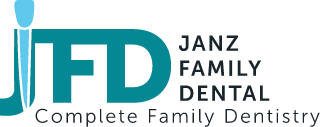It’s very important to us at Janz Family Dental that everyone has access to quality and affordable oral health care.
In order to offer services to as many people as possible, we accept many different insurance plans and bill providers directly so you don’t have to pay for your visit out of pocket. In addition to standard dental insurance plans, we also accept the Non-Insured Health Benefits (NIHB) Program often provided to people from First Nations and Inuit communities.
What is the NIHB Program?
The NIHB is a national program for registered First Nations and recognized Inuit people that offers medically necessary services and items that aren’t covered by provincial or territorial health benefits or private insurance.
The services and items covered by NIHB include dental and vision care, prescription medications, medical supplies and equipment, mental health counselling and medical transportation to access health care services not available in the area.
What’s included in the NIHB dental benefits?
NIHB dental benefits includes the following services:
- Cleaning and deep cleaning
- Regular exams and X-rays
- Fillings and crowns
- Root canals
- Removable full and partial dentures
- Tooth extractions
- Sedation and general anaesthesia
- Braces and other orthodontic appliances (limited to children under the age of 18 with severe jaw and teeth irregularities)
Any procedure that’s considered cosmetic is excluded from the plan, as are fixed dentures and any implant or implant related product.
Who’s eligible for the NIHB?
The NIHB is available to all residents of Canada who also falls into one of these categories:
- First Nations people who are registered under the Indian Act
- Inuk people who are recognized by an Inuit land claim organization
- A child under the age of 18 months whose parent is a registered First Nations or recognized Inuk person.
If you have children over the age of 18 months, you should apply for their Indian status or recognition from your Inuit land claim organization.
The West Edmonton dentist of choice
If you’re covered by the NIHB, and you’re looking for a children’s dentist, or one for yourself, come to Janz Family Dental. Our clinic offers teeth cleaning, exams and fillings to people of all ages. We also provide emergency dental service for those in need of urgent dental care in and around West Edmonton. Call us today for an appointment.

